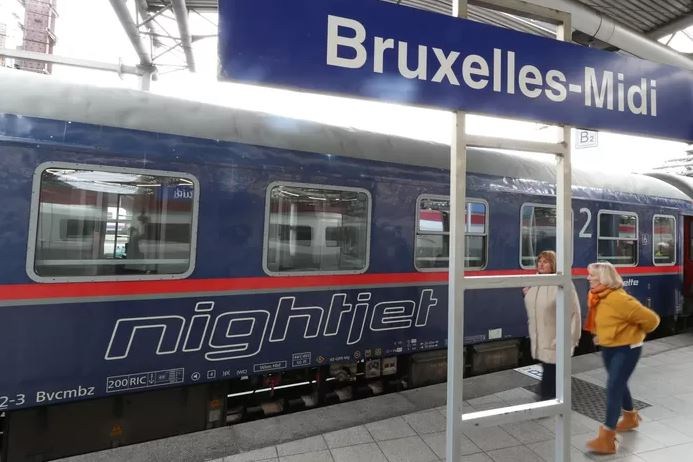As part of a move to boost sustainable international mobility, the Federal Government will set aside €2 million from 2022 to make Belgium an international hub for night trains.
The government announced it will support the greener alternative to cars or aeroplanes by reviving the sector after a survey by the Federal Public Service Mobility found that just 6% of people in Belgium travel by night train, while 62% would like to use this method of transport.
"Sleeping in Brussels and waking up after a train ride in Vienna, Milan, Malmö or Barcelona: the train makes us dream and I want everyone to enjoy it," Minister of Mobility Georges Gilkinet said.
"That is why I am very happy that a specific budget will now be made available to support night trains in Belgium. This government is working to make Belgium a hub for night trains. More trains, less flying," he added.
Related News
- Eurostar will operate extra trains during the Christmas period
- EU provides free train travels for young people
- Without new investment, night trains face a limited lifespan
In Belgium, mobility accounts for one-third of all greenhouse gas emissions. Supporting greener alternatives for mobility is an important lever for achieving the objective set by the Federal Government to reduce its output by 55% by the end of this decade and become climate-neutral by 2050.
In a press release, Gilkinet spoke not only of the popularity of night trains services among people living in Belgium, but he also stressed that several train operators are showing an interest in establishing a connection to Brussels, including traditional train operators like ÖBB as well as new players like European Sleeper.
Overcoming obstacles
Although there is a clear desire for night trains to be more accessible, there are still several barriers that the sector must overcome – especially when it comes to launching new night services, which requires a substantial investment and the creation of a loyal passenger base.
This is the main reason behind the Federal Government's objective to give financial support to the reviving of night trains, "to encourage new providers to take the plunge and to provide them with direct support," Gilkinet said.
He stressed, however, that night trains operate within an international context, meaning that Europe-wide regulatory improvements must be made. This will bring flexibility to the sector and address unfair competition with air travel, which is usually much cheaper on the Continent.
"Europe has great ambitions in the Green Deal and those ambitions now need to be translated into concrete actions... That is why it is urgent to put an end to the unfair competition between international trains and aeroplanes, especially for very short distances," said Gilkinet.

